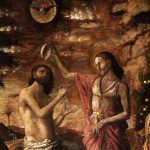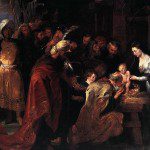When Christ comes to us, he does not come for the sake of punishment; he comes to perfect us in love. It is we who cry out, “You are hurting me.” We can be so comfortable in our fear. But what I detect, in both the blind man of Jerusalem and the hypothetical prisoners in Plato’s cave, is fear also of truth. We can be so comfortable in our ignorance. We can become comfortable with lies — including the lies we tell ourselves. Christ wants to throw that all away. He wants our perfection — our physical perfection, our intellectual perfection, our moral perfection. But we have to let him. We can only cry out for so long, “You are hurting me,” before we realize we are hurting ourselves by our resistance to Christ. [Read more] Read more















